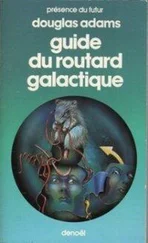Douglas Adams - Last chance to see
Здесь есть возможность читать онлайн «Douglas Adams - Last chance to see» весь текст электронной книги совершенно бесплатно (целиком полную версию без сокращений). В некоторых случаях можно слушать аудио, скачать через торрент в формате fb2 и присутствует краткое содержание. Жанр: Фантастика и фэнтези, на английском языке. Описание произведения, (предисловие) а так же отзывы посетителей доступны на портале библиотеки ЛибКат.
- Название:Last chance to see
- Автор:
- Жанр:
- Год:неизвестен
- ISBN:нет данных
- Рейтинг книги:5 / 5. Голосов: 1
-
Избранное:Добавить в избранное
- Отзывы:
-
Ваша оценка:
- 100
- 1
- 2
- 3
- 4
- 5
Last chance to see: краткое содержание, описание и аннотация
Предлагаем к чтению аннотацию, описание, краткое содержание или предисловие (зависит от того, что написал сам автор книги «Last chance to see»). Если вы не нашли необходимую информацию о книге — напишите в комментариях, мы постараемся отыскать её.
Last chance to see — читать онлайн бесплатно полную книгу (весь текст) целиком
Ниже представлен текст книги, разбитый по страницам. Система сохранения места последней прочитанной страницы, позволяет с удобством читать онлайн бесплатно книгу «Last chance to see», без необходимости каждый раз заново искать на чём Вы остановились. Поставьте закладку, и сможете в любой момент перейти на страницу, на которой закончили чтение.
Интервал:
Закладка:
Yes.
'Twice.'
'Many times.'
'And rebuilt.'
'Of course. It is an important and historic building.'
'With completely new materials.'
'But of course. It was burnt down.'
'So how can it be the same building?'
'It is always the same building.'
I had to admit to myself that this was in fact a perfectly rational point of view, it merely started from an unexpected premise. The idea of the building, the intention of it, its design, are all immutable and are the essence of the building. The intention of the original builders is what survives. The wood of which the design is constructed decays and is replaced when necessary. To be overly concerned with the original materials, which are merely sentimental souvenirs of the past, is to fail to see the living building itself.
I couldn't feel entirely comfortable with this view, because it fought against my basic Western assumptions, but I had to see the point.
I don't know whether this principle lies beneath the rebuilding of the Great Wall, because I couldn't find anybody who understood the question. The rebuilt section was swarming with tourists and Coca-Cola booths and shops where you can buy Great Wall T-shirts and electric pandas, and this may also have had something to do with it.
We returned to our hotel.
The maid had found my hidden glass of water and washed it. She must have searched hard for it because she had also found the bottle of aftershave under the bed and had placed it neatly back on the table by the others.
`Why don't you just use the stuff? asked Mark.
`Because I've smelt them all and they're horrid.'
'You could give them to people for Christmas.'
`I don't want to carry them round the world till then.'
`Remind me again why you bought them.'
`I can't remember. Let's go to dinner.'
We went to a restaurant called Crispy Fried Duck for dinner, and walking back through the city centre afterwards we came to a square called Tiananmen.
I should explain that this was October 1988. I had never heard the name Tiananmen Square, and neither had most of the world
The square is huge. Standing in it at night you have very little idea of where its boundaries are, they fade into the distance. At one end is the gateway to the Forbidden City, the Tiananmen Gate, from which the great iconic portrait of Chairman Mao gazes out across the vastness of the square, out towards its furthest point where there stands the mausoleum in which his body lies in state.
In between these two, beneath his gaze, the mood was festive. Huge topiary bushes had been imported into the square carved into the figures of cartoon animals to celebrate the Olympics.
The square was not full or crowded - it would take many tens or even hundreds of thousands of people to achieve that - but it was busy. Families were out with their children (or more usually, with their single child). They walked around, chatting with friends, milling about easily and freely as if the square were their own garden, letting their children wander off and play with others without an apparent second thought. It would be hard to imagine anything of the kind in any of the great squares of Europe, and inconceivable in America.
In fact I cannot remember any time that I have felt so easy and relaxed in a busy public place, particularly at night. The background static of wary paranoia that you take with you as a matter of unconscious habit when you step out into the streets of Western cities made itself suddenly apparent by falling silent. It was a quite magical silence.
I have to say, though, that this was probably the only time we felt so easy in China, or indeed easy at all. For most of the time we found China baffling and exasperating and perpetually opaque; but that evening, in Tiananmen Square, was easy. So the greatest bewilderment of all came a few months later when Tiananmen Square underwent that brutal transformation that occurs in the public mind to the sites of all catastrophes: they become reference points in time instead of actual places. `Before Tiananmen Square' was when we were there. `After Tiananmen Square' was after the tanks rolled in.
We returned to the square early the following morning, while the air was still damp and misty, and joined the queues that line up round the square each day to file into the mausoleum and past the body of Chairman Mao, lying in state in a perspex box.
The length of the queue beggared belief. It zigzagged backwards and forwards across the square, each new fold of it looming up at you from out of the mist and disappearing into it again, rank after rank, line after line. People stood in line about three or four abreast, shuffled briskly forward across the square, made a turn and shuffled briskly back, again and again, all under the orders of officials who paraded up and down in flared trousers and yellow anoraks, barking through megaphones. The easy atmosphere of the previous evening had vanished in the dreary morning mist, and the square was degraded into a giant marshalling yard.
We joined the line after some hesitation, half-expecting that we might be there all day, but we were kept constantly on the move by the barking marshals, and even found that we were accelerating as we got closer to the front. Less than three hours after we had tagged on to the end of the line we were hurried into the red-pile-carpeted inner sanctum and ran past the tiny, plump, waxy body as respectfully as we could.
The queue which had been so tightly and rigorously controlled as it was lined up to be fed into the mausoleum, disintegrated amongst the souvenir stalls as it emerged from the other side. I imagined that from the air the building must resemble a giant mincing machine.
The whole square and all the surrounding streets were served by a network of public address speakers, out of which music was pumped all day long. It was hard to make out what it was most of the time because the system was pretty ropey, and the sound just thumped and blared and echoed indecipherably around us, but as we climbed to the top of the Tiananmen Gate a few minutes later, we began to hear much more clearly what it was we were listening to.
The Tiananmen Gate, I should first explain, is a tall, flat-fronted structure with arches at the bottom through which you pass into the Forbidden City, and a large balcony across the top, behind which is a series of meeting rooms.
The Gate was built during the Ming Dynasty and used by the Emperors for making public appearances and proclamations. The Gate, like Tiananmen Square, has always been a major point of focus in the political history of China. If you climb up to the balcony you can stand on the spot from which, on 1 October 1949, Chairman Mao proclaimed the founding of the People's Republic of China. The spot is clearly marked, and there is an exhibition of photographs of the event clustered around it.
The view across the immensity of Tiananmen Square from here is extraordinary. It is like looking across a plain from the side of a mountain. In political terms the view is more astounding yet, encompassing as it does a nation that comprises almost one quarter of the population of this planet. All of the history of China is symbolically focused here, at this very point, and it is hard, as you stand there, not be transfixed by the power of it. It is hard, also, not to be profoundly moved by the vision of the peasant from Shao-Shan who seized that power in the name of the people and whom the people still revere, in spite of the atrocities of the Cultural Revolution, as the father of their nation.
And while we were standing on this spot, the spot where Mao stood when he proclaimed the founding of the People's Republic of China, the music we were having played at us by the public address system was first `Viva Espana' and then the `Theme from Hawaii Five-O'.
Читать дальшеИнтервал:
Закладка:
Похожие книги на «Last chance to see»
Представляем Вашему вниманию похожие книги на «Last chance to see» списком для выбора. Мы отобрали схожую по названию и смыслу литературу в надежде предоставить читателям больше вариантов отыскать новые, интересные, ещё непрочитанные произведения.
Обсуждение, отзывы о книге «Last chance to see» и просто собственные мнения читателей. Оставьте ваши комментарии, напишите, что Вы думаете о произведении, его смысле или главных героях. Укажите что конкретно понравилось, а что нет, и почему Вы так считаете.







